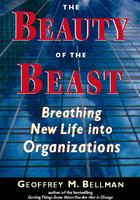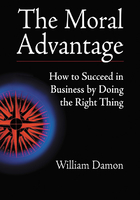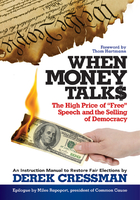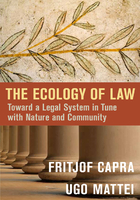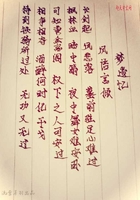TRUST THEM? ARE YOU KIDDING?
Wherever there is a human being, there is an opportunity for kindness.
SENECA
THE PUBLIC PROCESS solves problems best when people deliberate with respect, integrity, and concern for the common good.
But that conduct is not what we usually see in the public arena—at any level—and it's not the way most people think about any public process, especially where there's conflict or the possibility of conflict. From the U.S. Congress to your local school board, too often we see the public process bringing out the worst in people, not the best. Getting involved in it often seems as attractive as having a root canal.
That's a tragedy. As I said in the preface to this book, what most often separates success from failure in solving public problems is a positive and compassionate spirit, and competence in the so-called soft skills that flow from such a spirit—such as building trust, communicating with sensitivity, and inspiring others. What's in your heart is at least as important as what's in your head.
image Being a successful agent for change is about more than making the right moves. It's also about making the moves right.
The challenge is to develop and use the qualities of your own spirit that will help you solve tough problems in ways that build cooperation and community instead of pushing people further apart. This is easier said than done. I've seen too many brilliant analysts and otherwise competent managers fail because they couldn't or wouldn't do this.
image In your community, when's the last time you saw your school board, water district, town council, or county commission operate with “respect, integrity, and concern for the common good?” What difference did that make?
THE IMPORTANCE OF BUILDING TRUST
The most important—and the most difficult to develop—quality of spirit in the public process is the ability and willingness to build trust, especially with opponents.
Whenever I talk about the importance of trust in solving public problems, I see eyeballs rolling up in the audience. “Sure, I'd like to trust,” those eyes say, “but sometimes you just can't act that way in the Real World or you'll get run over. Where does this guy live, anyway? How smart is it to trust when the world is full of people who'll see it as a weakness to be exploited, and who can't wait to manipulate you and put you down?” Then I get the descriptions of crooked politicians, greedy CEOs, wacko neighbors, and beady-eyed bureaucrats.… Everyone seems to have someone like that in mind.
Yes, it's a tough world out there, with real villains in it. Yes, trusting is a risk—you can and probably will get hurt more than once. So what am I talking about?
Dealing with wars and revolutions and arms sales in the Foreign Service, I tangled with some of the worst people on the planet. I'm not naive about nasty people and the harm they can do, and I definitely don't underestimate the difficulty of dealing with them (but some of those people would have told you that I was no angel, either).
I started to change only when I realized, as a young diplomat at the United Nations, that a strategy of attacking and defending usually just led to escalating confrontations. At best, there were temporary “victories” that lasted as long as it took the other guys to lick their wounds and come back at me.
For me, it wasn't just foreign policy. My own first marriage was ending during the time I was at the UN, and the same lesson was just as evident at home. That marriage did not recover. But at the UN, the efforts I made to build more trusting relationships with my counterparts began to bear fruit almost immediately.
image
Trying to strengthen the arms embargo on South Africa (see chapter 1) was my first big test for using a more trusting approach at the United Nations. I never could have succeeded without the active cooperation of a half-dozen key diplomats from the Third World, all representing countries on the Security Council that had plenty of reasons not to trust the United States—or me. I was asking these people to persuade their superiors to put pressure on my own government to toughen the embargo, and they had every reason to think I had something up my sleeve. I had to convince them that what I was suggesting came from my genuine commitment to end apartheid. They had to trust me enough to take what was for all of them at least a modest bureaucratic risk. And, eventually, all of them took it.
That degree of trust didn't form overnight. In fact, when I arrived at the U.S. Mission to the United Nations in 1977, America's reputation throughout most of the Third World couldn't have been worse; my first challenge was just getting Third World diplomats to talk to me. It was no great leap to see that the honest dialogues the UN needed to solve the problems on its plate required trust, and that building trust meant taking the time, and caring enough, to put myself in other people's shoes and let them into mine.
I started by simply showing honest interest in other people's lives and sharing stories from my own. The diplomats were surprised at the openness, and some of them remained suspicious that this new openness from an American diplomat was another U.S. trick. But many more seemed willing to respond in kind. Slowly I began to build enough trust with some of the diplomats that we could begin to talk frankly about political problems.
Some months later, the Security Council passed the tougher arms embargo, made possible by the trusting relationships I'd built with my colleagues. When the committee I'd worked with gathered to celebrate, the chairman ordered the tape recorders turned off. After he'd congratulated everyone on the victory, he turned in my direction. “We all know the role Mr. Graham played,” he said, “and we are very grateful.” When I started to respond, a hand gently pushed me back in my seat, and the Zambian delegate sitting next to me described, with feeling, the personal impact on him of working with trust toward a common goal instead of the usual jockeying for national advantage. Three more Third World delegates followed him, saying essentially the same thing, and with a candor and emotion that I never heard in any UN session before or since. These feelings didn't disappear; in dealing with that one problem we created an atmosphere of at least modest trust that allowed us to approach other problems at the UN in a similar way. We weren't top dogs in our respective governments, so we didn't create world peace, but what we did made a difference and, I believe, inspired others.
HOW TO BUILD TRUST
My experience at the United Nations taught me lessons in building trust that I've used ever since.
Competence builds trust because it sets a standard. Both your allies and your opponents recognize your skills and experience; this makes miscalculations by any of them less likely and encourages straight talk. It also strengthens support for you from members of your own team. If they know how good you are at negotiating, for example, they'll be much more likely to trust you to take the lead at the bargaining table.
Accountability and honesty build trust; people know not only that you can do your job, but also that you will do it—and that you will tell the truth and keep your word.
Respect builds trust. Valuing other people's priorities, needs, backgrounds, outlooks, and styles helps them trust you, especially if they hold views that are very different from your own.
From my experience, however—
image The most powerful tool for building trust is caring for other people and for their situations.
By caring I don't mean some abstraction. Real caring is active—it goes past good thoughts to good actions, even when you're under stress. I apologize for spending the next section talking to you about what caring is—as if you didn't know that from your mother's knee. But I'm more than willing to embarrass myself because of the countless times I've seen citizen activists ignore the value of these simple steps.
■ A Caring Toolbox
Caring is putting yourself in others' shoes as best you can, so that you can more fully appreciate their feelings and needs. What must it be like to live this person's life? The more different that people are from you, the harder it is to do this, but it's very important that you try.
image Think of a person who is opposing you on a problem—someone you find it really hard to care for. Ask yourself, what would it be like to be her/him? The next time you have to deal with that person, let those insights soften what you say and how you say it.
Caring is minding all the little interactions. Who you are with the convenience store clerk is who you are.
image The next time a telemarketer interrupts your dinner and you're tempted to give a rude response, consider that the caller may be a minimum-wage single mom or an overworked volunteer who has just had 15 people hang up on her. You can still say no, and you can still say, “Take me off your list,” but spend another 10 seconds to add a few kind words that will make the person's tough evening a little brighter. Who knows what effect it might have?
Caring is looking for the positive.Acknowledge others for their strengths and contributions. Look for common interests and positive qualities rather than getting stuck on differences, weaknesses and faults. Giraffe Steve Mariotti used the survival skills of street kids to turn them into successful entrepreneurs (see sidebar page 40).
image Think of people you really don't want to be around. Now think of something good about each of them—some character trait or skill, for example. Now think of things you might have in common—perhaps it's rooting for the same baseball team, perhaps something more. The next time you meet each person, find a way to acknowledge the good things and shared interests.
Caring is being personal. It's getting to know people—sharing personal stories and experiences. This may mean being a little more open than you're comfortable with and inviting others to respond in kind.
Caring is active, nonjudgmental listen ing. Caring communications aren't jus about you talking.
image Think of a time, perhaps when you were feeling down, when someone really listened to you, not to tell you what was wrong with you but just to listen. What difference did that person's listening make for you? Have you ever listened that way to somebody else? What effect did it have?
Caring is doing small favors. I live down a long, winding dirt road that has 15 other families on it; some of them have always been friendly, some not. Visitors to all our houses are constantly getting lost, so I decided to make a detailed map showing how to reach all 16 houses. I gave copies to everyone on the road and to the firehouse and the county EMTs so that they could find us all, too. The next time I was out patching potholes, people who had never helped before came out with their shovels. There was a new friendly spirit, and I have no doubt that that little map helped cause it.
Caring is taking the time. No matter how rushed you are, there's always something caring you can do, even if it's only in the tone of your voice.
Caring is reaching out to people beyond your regular circle of family and friends.
Caring cannot be a manipulation. That will backfire, and you will end up much worse off than before.
Most of this stuff is small. Do it, however, and you might see a difficult person defrost. Trust, backed by genuine caring, permits dialogues that aren't possible any other way.
image
A few years back I was asked to help design and lead a conference on the future of the Everglades. Environmentalists wanted the Everglades' natural flows restored. Sugar planters wanted to keep using fertilizers that leached into the groundwater. Developers in coastal cities wanted a cheap supply of drained land for new suburbs. Other people in the cities wanted to slow the flight to those suburbs to protect the tax base for urban schools. Dade County wanted to build a new airport in the swamp. The Army Corps of Engineers and local politicians all had their points of view. It was a swamp in more ways than one.
All the stakeholders came to Fort Lauderdale for this conference. I worked with the organizers to set up the agenda so that people from every group got to talk at length about who they were and why they wanted what they wanted. Nobody else had to agree—but they did have to listen. Then I led the group in a visioning exer-cise—what did they see for the Everglades in 2015? The effects of listening and of visioning—instead of the usual posturing by interest groups—were dramatic. Tentatively at first, then with more energy, people began to make suggestions that were genuinely aimed at finding common ground. They did that not because of changes in their own views or personalities, or in response to the eloquence of others. They did that because by then they'd begun to see each other as human beings with legitimate points of view, to care about each other's situations, and to build enough trust to permit the kind of openness (and open-mindedness) that could lead to real solutions.
■ The Personal Benefits of Caring Are Also Important
Remember the movie Groundhog Day? Bill Murray's character gets stuck in one day that's repeated over and over until he slowly, slooowly learns that caring produces meaning and happiness in his life and in the lives around him—instead of the discord and loneliness he had created by being cynical and manipulative. That movie made the case as well as it can be made.
EFFORTS TO BUILD TRUS T ARE RISKY
The kind of cooperation achieved by the South Africa Arms Embargo Committee, and by the discussions on the Everglades, can happen when some trust has been established and is impossible without it. The story of how Giraffe John Hayes built enough trust to solve a serious land-use conflict is another good example (see sidebar, page 44). Trust gets established when people begin to care about each other and each other's situation as well as their own.
But you also need to remember the obvious: efforts at building trust, including initiatives of caring, are risky and don't always work. There are times when the people you're dealing with are too nasty or the situation is just too far gone to even try. Gandhi trusted that the British could eventually be persuaded to leave India peacefully, and it worked; his tactics wouldn't have persuaded Hitler to leave Poland. I could take the risks of building trust with my fellow UN diplo-mats—but I never would have done so with Henry Kissinger, my boss under presidents Nixon and Ford; trust was not in his vocabulary.
image When you're faced with the choice of trying to build trust or not, assess both the people and the situation you're dealing with. Initially you may come up with all the reasons not to trust: the situation is too tough or the opponent too nasty; there isn't enough time; you could be played for a chump. Now ask yourself whether you're making a true appraisal of the odds—or conning yourself so that you won't have to risk making the first trusting move. Remind yourself that building trust can bring important benefits despite the risks. Then make your decision.
It's not all or nothing. You will rarely have enough information at the outset of a negotiation or confrontation to make a good appraisal of whether trust is possible. So it makes little sense to start with an attack-and-defend strategy. Navigate by positives unless and until it becomes clear that the other people will not do likewise. Give others the opportunity to respond in kind, and if they do, be prepared to build on that (see chapter 7). Meanwhile, take Wild Bill Hickok's advice: never sit with your back to the door. Make sure you've left yourself enough time, resources, and opportunity to defend yourself if and when it's clear that the only goal of these people is to flatten you.
I've noticed that most of the people who tell me that trusting in tough situations is naive haven't actually tried it. Well-considered efforts to build trust are not naive; in fact, my experience is that they consistently raise the odds for success. What's really naive is believing, despite so much evidence to the contrary, that the tired game of attacking and defending will somehow work next time around.
When you get right down to it, the biggest obstacle to a more trusting approach may not be a nasty opponent; it may be our own skepticism that such an approach can ever work. There have been times when I've stepped forward to build trust—and times I've run in the other direction when I shouldn't have. But in a lifetime of negotiating, when I've taken the risk to care and to try to build trust, the benefits have far exceeded the losses.
image Successful citizen activism often depends on individual people and/or small groups sticking their necks out to trust when no one else seems ready to take that risk.
In chapter 4 we'll discuss how building trust is essential to successful teams. In chapter 7 we'll look at how building trust can help you negotiate and resolve conflicts, and I'll give more examples.
A GIRAFFE STORY
Steve Mariotti
When Steve Mariotti got mugged by teenagers on a New York City street, he didn't start agitating for better police protection. Instead, he started thinking of better ways for kids like the muggers to make a living. He had a hunch that streetwise kids could make it the way he had—by starting their own businesses. They were tough, assertive, and used to taking risks. What if the high energy levels some of these kids invested in illegal, destructive behavior could be channeled into legal entrepre-neurship? Mariotti left his import-export business and became a business teacher in a ghetto high school.
To his greatest frustration, he found that “business” in the public schools meant typing and bookkeeping. The kids were bored and so was Mariotti. Again and again, he was told to stick to the text. Again and again he got fired for insisting that he had a better idea. “The system doesn't want real entrepreneurship,” he says, “because it's so hard to control. Think about it—where else but school do they tell you which spot on the floor you can lay on for your naps? Entrepreneurs need to get out into the world and act.”
Using his own savings, Mariotti set up the nonprofit National Foundation for Teaching Entrepreneurship. In 1985 he was finally hired by a principal who understood and supported his program. That led to contracts with schools throughout the city. Five years later, the guy who got canned nine times was chosen High School Teacher of the Year by the national Federation of Independent Businesses.
Mariotti's students learn real-world skills like product development, marketing techniques, and financial planning. He takes classes on guided tours of New York's wholesale markets. The students each get a $50 grant to buy items that they then resell. Mariotti says this experience is “almost like a religious awakening… they'll never pay retail again.”
Since 1985 Mariotti's students have started more than 45 new companies, ranging from chore services to rap-song writing. Mariotti sees them helping with the economic regeneration of their neighborhoods. “I'm trying to produce a community of merchants. The program isn't about making money. It's about making people's lives better.”
As for himself, he says, “When I come home from working with these kids, I feel great. I never used to feel that good when I was just making money.”
Web link: The National Foundation for Teaching Entrepreneurship (www.nfte.com).
A GIRAFFE STORY
John Hayes
John Hayes was raised in Aspen, Colorado, where he learned to love the land. Over time he became dismayed at the unplanned and uncontrolled development that was spoiling the area, and he began looking for a place in the world that was as special as Aspen had been when he was a boy. He discovered the Methow Valley in Washington State and moved there in the 1970s. Soon, however, he saw ugly, unplanned development threatening to destroy that paradise too. He vowed not to let that happen.
What he's done ever since for wildlife, water conservation, and the protection of open space in the Methow Valley has been extraordinary. He started a nonprofit corporation to preserve open space and wildlife habitat in the valley. He designed and built a 16-mile community trail system that links cross-country ski trails with backcountry trails and service facilities. He implemented a new approach to land use that preserves more than 90 percent of the land as open space for scenic, wildlife, and agricultural use. He's gotten water-conservation standards written into county rules, persuaded owners to hide their building sites in the trees, and worked closely with natural-resources agencies to protect wildlife areas.
Hayes's success in creating workable solutions to very tough problems and age-old conflicts comes from more than hard work; it comes from bringing together people who often are in conflict—cattle ranchers, Native Americans, environmentalists, local and state bureaucrats and politicians, corporations, and land developers.
The trail project, for example, required that Hayes persuade owners along 16 miles of land to give up very valuable strips through their properties. If even one landowner had said no, the project would have been blocked.
Part of Hayes's success in bringing people together has been his ability to convey a vision for preserving the valley. He's become the “land preacher,” and through his leadership he has raised the consciousness of everyone involved.
But perhaps most important has been Hayes's ability to earn the trust of virtually all the factions in the valley, a trust he earned through his strong sensitivity to the feelings of the many different people with whom he works. Hayes understands that bridging the distance between many opposing factions means addressing all their needs and satisfying people of very different backgrounds. He knows that this takes time, respect, caring, and patience, and John Hayes has given all that to saving the Methow.
image
Being a successful agent for change is about more than making all the right moves. It's also about making the moves right. A positive and compassionate spirit, and the interpersonal skills that flow from it, are important, practical elements of active citizenship.
Making efforts to build trust with people—including opponents—very often helps solve problems and settle conflicts when nothing else will.
Navigate by positives unless and until it becomes clear that the other people will not do likewise.
The best way to build trust is through competency, accountability, honesty, respect, and—above all—caring. Caring is
putting yourself in others' shoes as best you can
minding all the little interactions
looking for the positive
being personal
active, nonjudgmental listening
doing small favors
taking the time
reaching out to people beyond your regular circle
not a manipulation
The personal benefits of caring are important.
Efforts at building trust entail risk, and they don't always work.
When you're faced with the choice of trying to build trust or not, assess both the people and the situation you're dealing with. If you feel yourself backing away, ask yourself whether you're making a true appraisal of the odds—or conning yourself so that you won't have to risk making the first trusting move.
Successful citizen activism often depends on individual people and/or small groups sticking their necks out to trust when no one else seems ready to take that risk.
WHAT'S NEXT? It's not likely that you'll be able to do what you want to do, all on your own. The next chapter is about forming, motivating, and leading teams.

